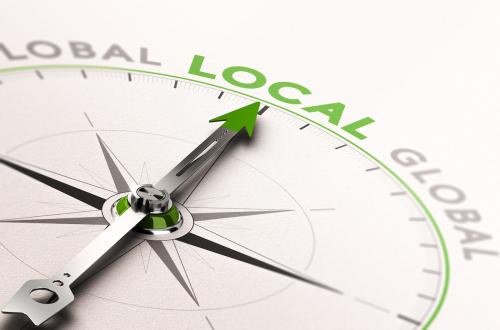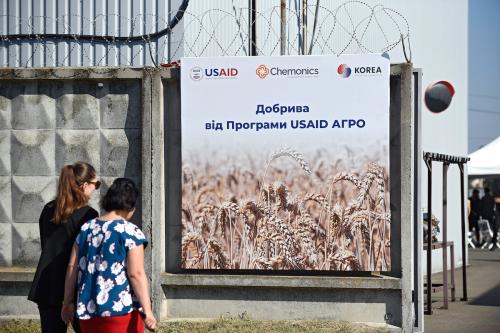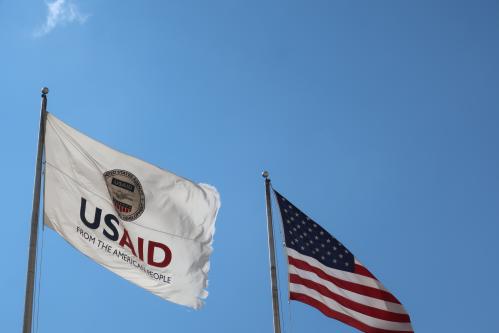Efforts to Curb Ebola Receive Boost from International Donors
Figures reported by the World Health Organization (WHO) this week reveal that the number of deaths from Ebola in Guinea, Liberia and Sierra Leone nearly doubled in the past month, with more than half of all cases occurring in Liberia. A study released by the World Bank on Wednesday predicts that if the spread of the virus is not rapidly contained, the economic toll on gross domestic product (GDP) in these countries could increase by as much as eightfold.
On Thursday, the U.N. Security Council declared that the Ebola outbreak is a “threat to international peace and security” and stated that the council will appoint an envoy to head a mission to stem the the spread of the disease—the U.N. Mission for Ebola Emergency Response (UNMEER). Other international donors have proposed new initiatives to support the West African countries affected by Ebola, including the U.S., which will send up to 3,000 troops and medical resources; China, which will send medical experts and a laboratory Ebola-testing team; and Cuba, which will send a large deployment of medical personnel to Sierra Leone. Meanwhile, in Sierra Leone, a three-day curfew began on Friday to allow health workers to identify and isolate cases of the disease.
Senegal’s Health Minister announced on Friday that the risk of spreading the Ebola virus within Senegal is non-existent after the quarantine period for all individuals who came in contact with an infected Guinean man came to an end.
U.N. Takes the Lead on Peacekeeping Mission in the CAR
According to the timeline established by the Security Council in April, peacekeeping forces in the Central African Republic transitioned their leadership from the African Union (known as the International Support Mission to the Central African Republic, MISCA) to the United Nations (now called the Multidimensional Integrated Stabilization Mission in the Central African Republic, MINUSCA) on Monday, September 15. The same day, U.S. Secretary of State John Kerry announced that the U.S. embassy in Bangui would resume its operations, and that the U.S. would provide $28 million in additional humanitarian funding to the CAR, for a total of $145 million of assistance this year.
The MINUSCA force is comprised of 6,000 re-hatted members of the African Union and 2,000 French troops—some of whom have been in the CAR since December 2013—as well as new troops from Morocco, Bangladesh, Pakistan and other countries. These numbers are expected to increase to 12,000 troops and police officers by April 2015. Many observers hope that the additional troops will help restore security in the country (although some doubt that it will). The Associated Press reported more than 5,000 people have been killed in the conflict since December 2013.
Food Insecurity Still Prevalent in Africa
On Tuesday, the Food and Agriculture Organization (FAO), International Fund for Agricultural Development (IFAD) and World Food Programme (WFP) released global and regional estimates on progress towards meeting the Millennium Development Goals (MDGs) and World Food Summit (WFS) hunger targets. The State of Food Insecurity in the World 2014 reports that although the number of undernourished people in the world declined from 840 million (in 2008-2010) to 805 million (in 2012-2014), in Africa, the number of undernourished people rose from 217 million to 227 million over the same period. Now, nearly a quarter of the world’s undernourished live in Africa, making it the continent with the highest prevalence of hunger. Constraints such as conflicts, natural disasters and other emergencies, including the recent Ebola outbreak, low incomes, few safety nets and lack of infrastructure for distributing or accessing food continue to undermine efforts to reduce hunger in many countries. Despite this dismal outlook, the FAO Director-General José Graziano da Silva highlighted African leaders’ commitments to end hunger by 2025 through the Comprehensive Africa Agriculture Development Programme (CAADP) as a “bold step” that will produce concrete results in the coming years.



Commentary
Africa in the News: International Efforts to Stem Ebola Intensify; Peacekeeping Mission in the Central African Republic Transfers to U.N. Leadership; U.N. Agencies Report on Food Insecurity in Africa
September 19, 2014